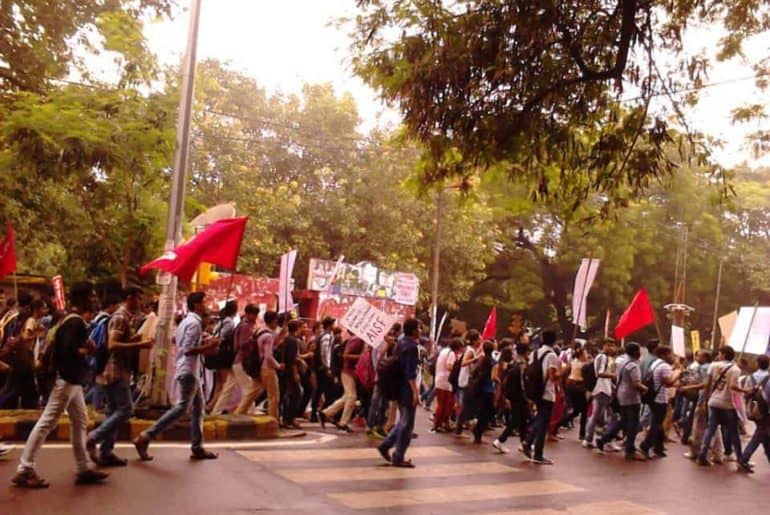A play titled ‘Aksariyat Akliyat’ to be performed in Delhi University’s Shaheed Sukhdev College of Business Studies(SSCBS) was cancelled by the college due to being based on Kashmir.
On the 25th of January, a Parindey Theatre Group was all set to perform a play, titled ‘Aksariyat Akliyat’, in Shaheed Sukhdev College of Business Studies affiliated to the University of Delhi (DU), at the pre-event of Crescendo, the annual cultural fest of the college. The theme of the play was centered on the history and politics of Kashmir along with narratives of mythology. Owing to this characteristic, the play was cancelled by the college administration.
The college administration decided to cancel the play because they were apprehensive of the sensitive nature of the issue based on which the play had been developed. They were of the idea that the play could easily land the college into trouble.
The play had to be performed at the annual event, titled ‘Crescendo 2.0’, and essentially outlined the political dynamics of the formation of Jammu and Kashmir. Mr. Rishi Sahai, the Head of the Management Committee claimed to be unaware about the content of the play as well as the lineup of the event.
The Students’ Council had to look into the matter and signed the letter of settlement of behalf of the Principal of the institution. The Principal also suggested modifying the play for ‘avoiding controversy’ and also made an offer to the theatre group to perform at another time, which was later declined by the team.
Further, a student of the college, who wished to remain anonymous, said,”As is usually the case with government colleges, the administration tries to distance itself from anything that is political, in order to stray clear of trouble. Although, many students do feel that this may not be the correct approach, always.”
According to Vivek Tyagi, the director of the play, “The play had been performed in 5 different cities and over 15 times, and nothing was ever registered as controversial, and moreover, a great stand-up comedian such as Rahul Subramanian was in full support of our cause.” Subramanian was also scheduled to perform at the event. He had also added that it was a demotivating moment for the team and that they were expecting support from the Delhi Theatre Circuit, but no such gesture was made.
Image credits- ED Times
Suhani Malhotra















